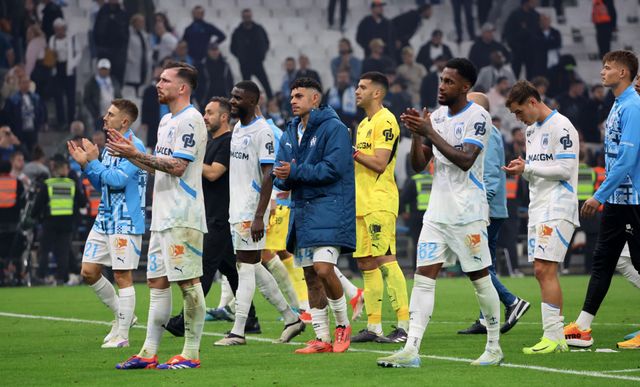
The 2024/2025 Ligue 1 season is unfolding as a fascinating canvas of tactical evolution, where the art of football strategy is being redefined every matchday. With major clubs like Paris Saint-Germain (PSG) and Olympique Marseille at the forefront, the league has transformed into an arena where innovative tactics and strategic mastery are dictating outcomes, offering a thrilling spectacle for fans and analysts alike.

Tactical Innovations and Strategic Depth
The season so far has been marked by a notable shift towards tactical experimentation. PSG under manager Luis Enrique has embraced a high pressing approach, utilizing a 4-3-3 formation that morphs into a more aggressive 3-4-3 when in possession. This tactical setup not only maximizes the attacking prowess of players like Kylian Mbappé and Neymar but also enhances their defensive transitions, making them a formidable force.
PSG's strategic pivot is backed by data-driven insights. The team's ability to maintain an average of 60% possession and execute over 85% pass completion rate in matches underscores their control-centric philosophy. "We're focusing on maximizing ball retention and pressing high to regain possession quickly," Enrique explained in a recent interview.

In contrast, Marseille, under the stewardship of Marcelino García Toral, has carved out its niche with a defensively solid 5-3-2 formation, allowing them to absorb pressure before launching swift counter-attacks. This setup is particularly effective against teams that commit players forward, enabling Marseille to exploit spaces with rapid transitions. Their recent 1-1 draw against PSG was a testament to their defensive resilience and tactical intelligence.
The Role of Versatility and Player Intelligence
The tactical evolution in Ligue 1 is also a reflection of the versatility and intelligence of the players. Teams are increasingly relying on versatile players who can adapt to various roles within a single match. For instance, PSG's Achraf Hakimi has been pivotal in transitioning from a traditional right-back to an attacking wing-back, providing width and depth to their gameplay.
Marseille's Dimitri Payet, though in the twilight of his career, continues to be a key playmaker, orchestrating plays from deep and adapting his role based on the team's needs. His ability to read the game and dictate tempo remains unmatched in the league.
Data-Driven Decisions and Coaching Mastery
The tactical shifts in Ligue 1 are not just a product of intuition but are heavily informed by data analytics. Coaches are leveraging advanced metrics to assess player performances, opponents' weaknesses, and strategic adjustments. This analytical approach has provided teams with a competitive edge, allowing them to tailor strategies with precision and adapt in real-time.
"Our approach to every game is deeply analytical," said a member of the PSG coaching staff. "We use data to fine-tune our tactical plans, ensuring that our strategies are not only effective but also adaptable."
Impacts on the League's Competitive Landscape
The tactical evolution in Ligue 1 has made the league one of the most competitive in Europe. With teams like Lyon and Monaco also adopting innovative strategies, the battle for European spots is fiercer than ever. Lyon's use of a fluid 4-2-3-1 formation, which allows for seamless transitions between defense and attack, has been pivotal in their pursuit of a top-four finish this season.

According to Fotmob, the current Ligue 1 standings reflect this intense competition, with only a handful of points separating the top teams. The unpredictable nature of the league has also enhanced fan engagement, with each matchday offering new narratives and potential upsets.
The Future of Tactical Football in France
As the season progresses, the tactical landscape of Ligue 1 promises to evolve further, with teams continually seeking innovations to outmaneuver their rivals. This season's strategic battles have not only elevated the quality of football on display but have also positioned Ligue 1 as a hotbed for tactical experimentation and development.
In conclusion, the 2024/2025 Ligue 1 season is a testament to the dynamic and evolving nature of football. As teams continue to innovate and adapt, they not only enhance their competitive edge but also contribute to the rich tapestry of football strategy, making Ligue 1 a must-watch for football purists and tactical enthusiasts alike.